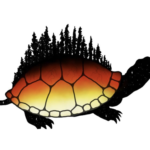Technical Committees
Chiefs of Ontario First Nations Education Coordination Unit
The First Nation Education Coordination Unit (FNECU) is a technical and advisory body operating under the umbrella of the Chiefs of Ontario to address lifelong educational priorities. It is comprised of the Education Directors of the four Provincial Territorial Organizations (PTOs) and one representative from the Independent First Nations. Additional seats are reserved for established regional Indigenous Education Organizations. Currently, these seats are held by the Anishinaabek, Mushkegowk and Onkwehon:we Language Commission of Oniatari’:io (AMO), the Indigenous Institutes Consortium (IIC), and the Ontario First Nations Young Peoples Council (OFNYPC). The FNECU is supported and coordinated through the Chiefs of Ontario office by the Director of Education.
The Education Coordination Unit is currently engaged in a number of ongoing projects and initiatives related to special education, elementary and secondary education, post-secondary education and training and language revitalization. The primary objective is to identify and enact initiatives that will result in delivering sustainable, equitable First Nation education systems under full First Nations jurisdiction.
Contact: Mindy Taylor, Interim Director of Education & Paige Sillaby, Education Policy Analyst
Links: http://education.chiefs-of-ontario.org/about/#
Ontario Technical Table – Interim Funding Approach
The Ontario Technical Table – Interim Funding Approach (OTTIFA) is a joint technical table comprised of members of the FNECU, Chiefs of Ontario and Indigenous Service Canada (ISC). The OTTIFA is an ad hoc committee that has a mandate to continue discussions on the development, implementation and ongoing evaluation of Ontario’s interim funding formula as it pertains to provincial funding comparability for First Nations K-12 education.
Contact: Mindy Taylor, Interim Director of Education & Paige Sillaby, Education Policy Analyst
Links: Policy Proposal – Transforming First Nations Elementary and Secondary Education
Ontario First Nation Special Education Working Group
The Ontario First Nation Special Education Working Group (OFNSEWG) was established in 2005, as a sub-committee of the FNECU. The OFNSEWG is comprised of FNECU members, as well as senior officers from Indigenous Services Canada (formerly known as Indian Affairs). The OFNSEWG has a mandate to gather data for the development of recommendations on improvements and reform, as it relates to the High Cost Special Education Program (HCSEP). In addition, the OFNSEWG administers a needs-based process, to ensure HCSEP recipients receive equitable levels of funding to deliver the required special education services for First Nation students in Ontario.
Contact: Mindy Taylor, Interim Director of Education & Paige Sillaby, Education Policy Analyst
Links: http://education.chiefs-of-ontario.org/priorities/specialeducation/
First Nations Lifelong Learning Table
The First Nation Lifelong Learning Table (FNLLT) was formed in 2016 to create a forum for Ontario First Nations and the Province (Ministry of Education) to build a stronger working relationships and identify, prioritize, discuss and work to address issues and opportunities related to the provincial education sector.
The FNLLT prioritizes tasks that align with the five priority areas: relationships; languages & culture; curriculum; information, access & accountability; and policy development.
Contact: Natasha George, Lifelong Learning Coordinator
Links: http://education.chiefs-of-ontario.org/priorities/lifelonglearning/
Reciprocal Education Approach (REA) October 2020 – Webinar Q&As
Reciprocal Education Approach (REA) FAQs
How to participate in the REA – Information for Parents, Guardians and Students
Indigenous Institutes Consortium
The Indigenous Institutes Consortium (IIC) addresses the collective issues impacting post-secondary Indigenous education in Ontario. Today, the Indigenous Institutes Consortium (formerly the Aboriginal Institutes Consortium) represents seven Indigenous-owned and controlled education and training institutions across Ontario, working collectively to secure adequate resources to support the development and to promote the recognition and success of member institutes.
Contact: Mindy Taylor, Interim Director of Education
Links: https://iicontario.ca/
Indigenous Institutes Act, 2017


